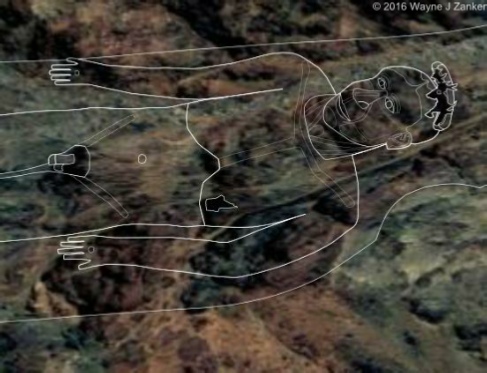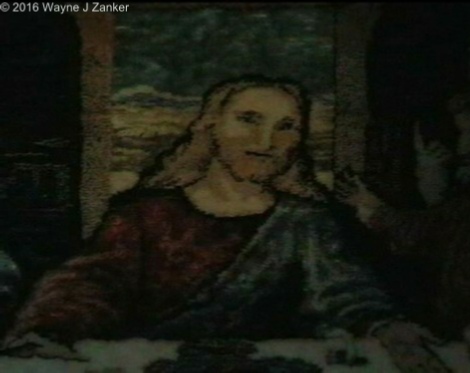

Proud Publisher of the Lord’s Family Album -
Yeshuwa the Anointed (haMashiach)
* revealed Himself as El Elyown or El Most High and challenged and condemned monotheism.
* will only return to Earth to wrap up human history after it is split in two by a devastating asteroid (Isaiah 24). The misunderstood thousand-
* demanded physical circumcision for males but not females, since un-
* chose the Twelve for their abilities with fishing knives and taught them to circumcise, then heal the wound. Foreskin removal has a profound effect upon decision making and can free one from the delusions of imagination. Circumcision also provides the legal basis for having a relationship with Yeshuwa and Yahuw’ah.
* claimed that He brought a sword to divide families (Matt. 10:34-
* is very strict when it comes to sexual behaviour and orientation. Marriage may only be between one man and one woman, never same sexes. While He showed tolerance towards prostitutes and assisted them, like Mirya of Magdala, the parable of the Royal Wedding Feast in Matthew 22:1-
* had the attitude, in a major departure from the punitive aspects of the Mosheh covenant, that in this area only those without sin have the first right to throw stones (John 8:7). As the Judge of all men (Genesis 18:25) punishment is His prerogative. He took the big picture perspective. Imagination can produce powerful effects on thinking and behaviour. If one is to be punished, then everyone else should be too for their sins.
* never spoke of hope or grace, according to His recorded sayings.
* never mentioned overseers or appointed bishops as successors to His sholechiym (“sent ones”),
* taught close-
Jesus Christ (‘Iesous Christos)
* only knew the Father as the Almighty and taught monotheism like the Sadducees and Pharisees.
* did not say what his heavenly Father’s name was, but it is believed to be Jehovah or Yahweh.
* never used parables to explain the mysteries of creation, but meant them to be interpreted through the eyes of Paul.
* mentioned circumcision on only one occasion in John 7:22-
* sent the apostle Paul to tell Jews and Gentiles everywhere that circumcision and un-
* focussed a lot upon family and church unity with children honouring their mothers and fathers and both slaves and their owners treating each other with respect.
* apparently permits divorce and re-
* evidently said nothing against homosexuality, although the apostle Paul strongly condemned it in Romans 1:24-
* taught, according to Paul, that faith is a set of beliefs in him and his heavenly Father, called God (ho Theos), yet established by men, especially himself. These are then empowered by emotion with the believer filled with love and hope.
* taught salvation by faith through grace apart from any works of the Law in a Buddhist-
* taught that his heavenly Father wants all men to be saved. He died for all with no exceptions -
* taught unconditional love which is patient and kind, not jealous or boastful, does not insist on its own way or rejoice in wrong, but rejoices in the right (1 Corinthians 13:4-
* had in mind this distant kind of love, where whoever “believes in him will not perish, but have eternal life” (John 3:16). Any sightings of Jesus are only visualised or imagined (Hebrews 2:9, 12:2).
* taught that one does not die, but sleeps until judgement day.
* gave power to Peter to transfer his cloak of apostleship onto a suitable successor and always a bishop in the one true church.


| General Background Articles |
| Crime Scene Articles |
| Science-Focused Articles |
| Video For NTSC Format |